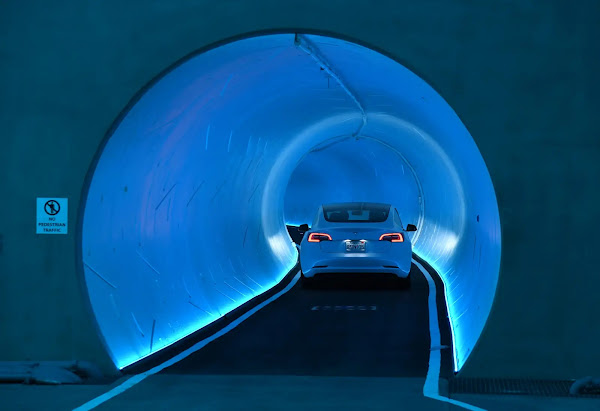Marx: But it’s not just that it would become a huge revenue stream that would transform the business, it’s more just that I think there’s this general faith in technology and the way that technology develops and that they can achieve these things. Because I would say it’s not just Google who had that faith in self-driving technology, all these companies who are working on it did to a certain degree, and really believed that it was something that they were going to be able to figure out and make a reality within a few years. Then they had to be hit with the hard reality of how difficult to realize their goal actually was. I think it just speaks to a bigger kind of faith in technology that exists within many of these companies and even the society as a whole, to a certain degree, that you just kind of turn these big data sets toward what you want to achieve. And they eventually figure it out. And time and time again, I think we’re seeing that’s not really being realized.
I think it also goes back to what I was saying earlier in terms of the distraction that Elon Musk has achieved really effectively. To try to distract from real solutions to the problems that the automobile has created and things that would require less car dependence and to actually offer people alternatives to the car and to instead kind of intervene and say, no, actually, I have these ideas that are going to be even better than that, and we should pursue those instead to try to sap energy from alternatives. So the Hyperloop, for example, he admitted to his biographer that the reason the Hyperloop was announced—even though he had no intention of pursuing it—was to try to disrupt the California high-speed rail project and to get in the way of that actually succeeding.
Rhett Jones
I rarely find articles I can agree with almost unconditionally, and this is one of those rare examples. It covers multiple aspects of transportation, from the environmental issues of electric vehicles (particulate pollution from tire wear and dust, and the fact that the electricity consumed generally does not come from renewable sources), to Uber’s unsustainable business model, to Musk’s numerous initiatives that instead of solving practical issues aim to entrench the use of automobiles and thus benefit Musk’s business at Tesla.

The author criticizes scooters as well – making them disposable encourages waste and can increase emissions during recycling. Personally I am against them because of the chaos and litter they often cause in cities. A short phrase reflects on why Apple won’t have any revolutionary solutions in this space either: as any corporation, Apple’s incentive is to encourage consumption, in this case sales of its car and associated services, whereas more efficient and environmentally-friendly transportation systems would have to involve less cars on the streets, not more.
The broader issue with faith in technology I would say is not that it cannot deliver improvements in our standards of living, but that often we fail to fully recognize the implications and downsides of technology, and that entrepreneurs are constantly chasing after new technologies instead of focusing on using what’s available to solve societal concerns. It’s a recurring theme when dealing with the pandemic and global warming as well: people searching (and waiting) for the single, perfect solution (in case of the pandemic high-tech contact tracing or a flawless vaccine, variant-proof, preventing infection, without side effects – or the ever elusive carbon capture tech and nuclear fusion for carbon-neutral energy generation) instead of adapting existing solutions and applying multiple strategies in parallel to mitigate the bulk of the problem.
Post a Comment